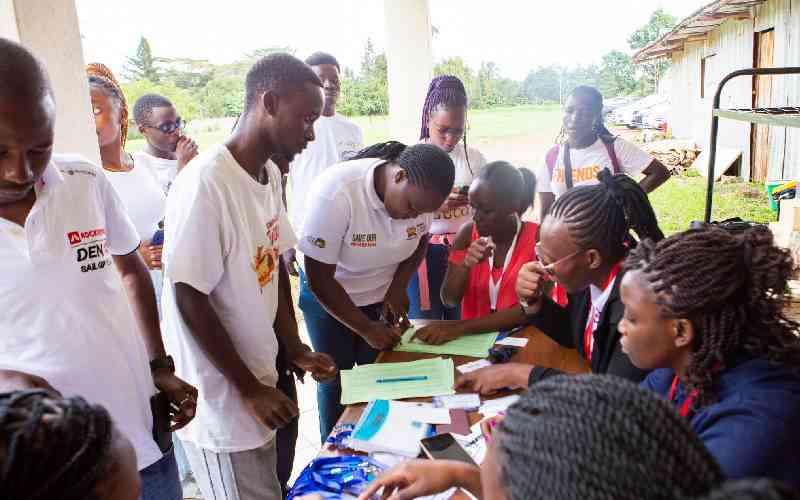The burden of unemployment is the elephant in the room for Kenya and many other developing countries today. But effects of their plight are not spread equally. It rests disproportionately on the shoulders of women, majority of whom are poor and despondent. Today, one-third of the country's population is between 18 and 34 years – far more young people than there are jobs to support them and the situation continues getting out of hand.
According to the World Bank, while 800,000 youth reach working age annually, only 50,000 new formal modern-wage jobs are created. It is because of this imbalance that 80 per cent of the country's 2.3 million unemployed are between the ages of 15 and 34.
This hopeless situation continues worrying every mother and naturally, they should be duty-bound to be part of the solution. Mothering instinct is one of the strongest social bonds in the animal kingdom. Big cats like the lionesses, the elephants and even hippos are said to be in their most dangerous state when they have cubs and calves. This is because the desire to protect their young ones from danger, real or perceived, surpasses any other desire.
In human society, there is no bond that lasts longer like a mother's love. This means that even when the children complete school and don't find work, their mother will continue feeding and housing them. The situation is even more difficult for young people seeking positions of leadership, especially those from humble backgrounds. With the woman being the central pillar of our society today, the failure of the youth automatically piles the pressure on women socially, economically and emotionally.
Most unemployed youth become a huge economic burden to their mothers largely because it's the women who feed and house. Sometimes these young people are married and their mothers, most of whom are old and poor, end up bearing the burden of feeding and housing their children's families.
Culturally, most Kenyan communities associate the success of the children with their fathers and failure, with their mothers. Therefore, even when unemployment and hopelessness pushing these young people to vices like drunkardness and crime, women take the blame.
When a girl becomes a victim of early and unwanted pregnancies, it's the woman who takes the responsibility of caring for her by helping the girl overcome the shock, care for the pregnancy and bringing up the baby. Sometimes these mothers offer to become nannies so that the girls can go back to finish their education.
On the other hand, a woman that is living in an abusive marriage or relationship is more likely to transfer these emotional and social strains to children, either knowingly or unknowingly. She might abuse the children in a bid to revenge against the man or lack the mental and physical strength to fully take proper care of them. When strained relationship ends up in divorce the biggest losers are children.
Solving socio-economic issues affecting the youth in Kenya today will in effect liberate a lot of women from the socio-economic bondages that they have been held in for so long. The problem of the youth is more understood by the mothers than it would be understood by the fathers. Women are not only sympathetic, but also empathetic.
Therefore, for the youth to succeed, they need more women leaders than men.
National and County governments should not only draft policies aimed at solving the youth issue, but should also put in place Affirmative Action to ensure more women are in policy making and political leadership positions.
 The Standard Group Plc is a
multi-media organization with investments in media platforms spanning newspaper
print operations, television, radio broadcasting, digital and online services. The
Standard Group is recognized as a leading multi-media house in Kenya with a key
influence in matters of national and international interest.
The Standard Group Plc is a
multi-media organization with investments in media platforms spanning newspaper
print operations, television, radio broadcasting, digital and online services. The
Standard Group is recognized as a leading multi-media house in Kenya with a key
influence in matters of national and international interest.
 The Standard Group Plc is a
multi-media organization with investments in media platforms spanning newspaper
print operations, television, radio broadcasting, digital and online services. The
Standard Group is recognized as a leading multi-media house in Kenya with a key
influence in matters of national and international interest.
The Standard Group Plc is a
multi-media organization with investments in media platforms spanning newspaper
print operations, television, radio broadcasting, digital and online services. The
Standard Group is recognized as a leading multi-media house in Kenya with a key
influence in matters of national and international interest.








